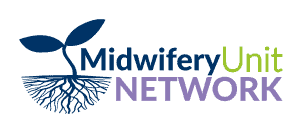
At MUNet, we’ve made some amazing collaborations across the world; there’s much to celebrate! This month’s newsletter shines a spotlight on the fantastic work of our midwife friends in Mexico City who, against the odds of a dominant medical system and through sheer tenacity and dedication, have succeeded in implementing a model of Midwifery Units.
Midwifery Unit Network would like to sincerely thank the author of this article, Midwife Hannah Borboleta – Hannah and her colleagues truly are an inspiration to the world of midwifery.
With thanks, The MUNet Director Team (Lucia, Chantelle, Ellen and Richard).
——————————————————————————————————————————————————————————————
Morada Violeta is a newly opened midwifery unit in Mexico City, becoming one of three midwifery centres in Mexico City and the first to call itself openly feminist. This means that we make it a central point of our philosophy to be actively aware of power dynamics in healthcare, creating emotionally and physically safe spaces for women to make decisions.
Midwifery in Mexico is not regulated nor are midwifery units, or casas de Partería, as they are known. Whilst midwifery in Mexico has a long tradition, there has been a great and successful effort to eradicate midwifery and take options away from women other than those that are physician-led with hospital-based care. Both in rural and urban areas, midwifery is a private service and seen as a resource only when conventional medicine is not available. Whilst general maternal health is government funded in Mexico, the midwifery model of care is not favoured within the medical system. There is much stigma surrounding midwifery; in Mexico City, many women believe that midwifery does not exist and that it belongs to rural or countryside populations. As midwives, we work hard to inform women about their rights, their options and about the existence and benefits of midwifery care in urban settings.
Morada Violeta has a team of three midwives and one apprentice and offers services ranging from prenatal care, birth and postpartum care, alongside well-woman care. Well-woman care contributes a significant portion of our midwifery workload and includes performing cervical smears, treating vaginal infections, fibroids, polycystic ovaries and contraceptive insertion or removal. Morada Violeta trains apprentices in the midwifery model of care, always using a feminist approach. With only four midwifery schools in a country of 2 million births per annum, Mexico lacks training opportunities for midwives, especially in home or midwifery unit settings. As a feminist midwifery centre, we place special emphasis on women-centred care: this is often in contrast to hospital-based care where obstetric violence is commonplace. We ask consent before we perform any ‘touch’ procedures on women – if we don’t gain consent, we don’t proceed. Another example of our feminist approach is encouraging self-insertion of a speculum should it be required for an examination.
We invite women to take charge of their health; we never insist on one or another decision as we believe women know what is best for them when given appropriate information and the space for safe decision making. We believe in women and we believe in their autonomy. This is revolutionary in a country where 11 women are murdered daily and many more suffer violence in their homes, their workplaces and during obstetrical and gynaecological “care”.
Most midwives in Mexico work in an alegal setting: our profession and related clinical tasks are not regulated, though we are not forbidden either. We believe women have a right to health care and to choose who their care provider can be in pregnancy and birth; as midwives of Morada Violeta, we have become women’s right defenders and promoters of rights in birth and women’s healthcare.
By Hannah Borboleta

